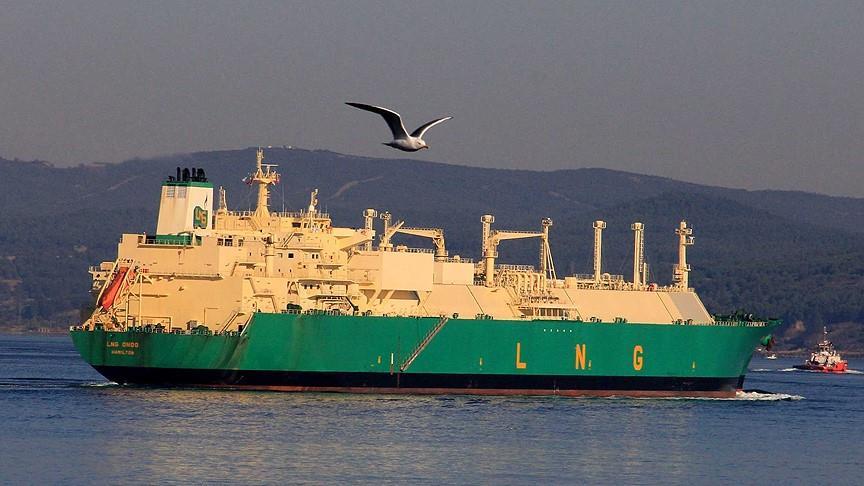- The Writer holds an MSc in Eurasian Political Economy & Energy from King’s College London and also an MA in European Studies from Sabancı University.
The second largest producer of gas in the Russian Federation and the leader of the petroleum industry, Rosneft, continues to expand its share of natural gas in its asset portfolio. While LNG exports might not be at the top of the Rosneft’s future growth projections, as was the case for Novatek who initiated the government’s decision to liberalize LNG exports back in 2013, Rosneft, has benefited from an amendment to Russia’s gas export law to remove Gazprom’s monopoly on LNG exports, and has supported its long-term aims by enlarging its trading options.
While only Gazprom was allowed export LNG up until 2013, the amendment to the gas export law passed by the State Duma aimed at breaking Gazprom’s monopoly on gas exportation in LNG. The amendment has opened the door for companies who already have gas extraction licenses, including Rosneft and Novatek. This requirement suggests that the new law was tailor-made for these two companies’ operations.
Recent developments in Russia’s natural gas sector have revealed that Gazprom’s monopoly rights on gas pipelines and its exclusive rights to ship LNG abroad have begun to change with President’s Vladimir Putin’s decision to loosen Gazprom’s monopoly. As a result, Novatek and Rosneft have begun to play a greater role through gaining access to a larger portion of the gas market.
Rosneft is working on various key strategic areas to increase the company’s shareholder value with the long-term aim of gaining better market share in the gas market. As of 2016, Rosneft produced over 67 billion cubic meters of natural gas in central, western, eastern and southern Russia, earning approximately US$3.5 billion. As part of its development plans, Rosneft has expanded the gas segments in its value chain, developed trading competencies as well as conducted works for LNG production to enter into the global LNG market in the future. Rosneft has also contributed to the opening of the gas market to competition in order to diminish Gazprom’s monopoly in the pipeline business.
While the primary focus of Novatek has been to expand its LNG exportation, Rosneft, on the other hand, has focused more on the domestic gas market, which is set to peak in the coming years. Given the increased volume of gas production in recent years, it is expected that by the end of 2020, Rosneft production will surpass the threshold of 100 billion cubic meters. Of this amount, Rosneft will possibly expand its domestic market share in the short-term, which eventually will force Gazprom to evaluate its monopoly market position in the domestic gas market. Meanwhile, Novatek is expected to export over one-fourth of its natural gas production in the form of LNG.
All of Rosneft’s actions beg the question as to why it pays a lot of attention to LNG export liberalization if the primary objective is to have a larger share of the domestic gas market in the short term. Although the company has many other priorities to worry about, varying from how to pay its major acquisition debts, finance its international investments, and upgrade its refinery projects; Rosneft has invested an enormous amount of time initiating gas export liberalization as a bargaining chip to gain better access to the gas market and to gain leverage in negotiations. Therefore, it would be fair to say that Rosneft is not aiming to enter the gas export business for the short term but has invested for its long-term market portfolio, which will eventually strengthen Rosneft’s hand in negotiations against Gazprom.
Rosneft has already won Gazprom’s customers at home with the introduction of a flexible natural gas pricing policy. Furthermore, Rosneft is extending its investment portfolio abroad. Recent gas-related investments in Venezuela, Mozambique, Brazil Vietnam reflect Rosneft’s intention to strengthen its portfolio. The company’s recent deal with ENI for the Egyptian Zohr field, which is set to restart Egypt’s currently under-utilized LNG capacity into new LNG export business, reveals Rosneft’s global gas ambitions.
Rosneft’s increasingly stronger position in the domestic gas market has forced Gazprom to reconsider its once monopolistic position. Rosneft’s future growth in the Russian energy business seems to be guaranteed for the time being given its already strong position in the domestic market. Rosneft’s gas export ambition, either in the form of pipeline or LNG, looks like a long-term plan, which in the following years will show if Rosneft will further increase its presence in the global gas market and will uncover if its strategic decisions are opportunistic or calculated.
- Opinions expressed in this piece are the author’s own and do not necessarily reflect Anadolu Agency's editorial policy.


